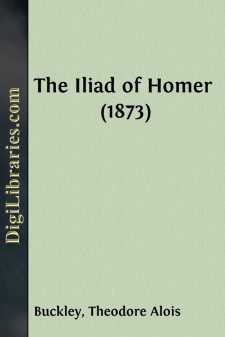Categories
- Antiques & Collectibles 13
- Architecture 36
- Art 48
- Bibles 22
- Biography & Autobiography 815
- Body, Mind & Spirit 144
- Business & Economics 28
- Children's Books 18
- Children's Fiction 14
- Computers 4
- Cooking 94
- Crafts & Hobbies 4
- Drama 346
- Education 58
- Family & Relationships 59
- Fiction 11833
- Games 19
- Gardening 17
- Health & Fitness 34
- History 1378
- House & Home 1
- Humor 147
- Juvenile Fiction 1873
- Juvenile Nonfiction 202
- Language Arts & Disciplines 89
- Law 16
- Literary Collections 686
- Literary Criticism 179
- Mathematics 13
- Medical 41
- Music 40
- Nature 179
- Non-Classifiable 1768
- Performing Arts 7
- Periodicals 1453
- Philosophy 65
- Photography 2
- Poetry 896
- Political Science 203
- Psychology 44
- Reference 154
- Religion 515
- Science 126
- Self-Help 85
- Social Science 82
- Sports & Recreation 34
- Study Aids 3
- Technology & Engineering 59
- Transportation 23
- Travel 463
- True Crime 29
Our website is made possible by displaying online advertisements to our visitors.
Please consider supporting us by disabling your ad blocker.
The Iliad of Homer (1873)
Categories:
Description:
Excerpt
ARGUMENT.
Apollo, enraged at the insult offered to his priest, Chryses, sends a pestilence upon the Greeks. A council is called, and Agamemnon, being compelled to restore the daughter of Chryses, whom he had taken from him, in revenge deprives Achilles of Hippodameia. Achilles resigns her, but refuses to aid the Greeks in battle, and at his request, his mother, Thetis, petitions Jove to honour her offended son at the expense of the Greeks. Jupiter, despite the opposition of Juno, grants her request.
Sing, Ο goddess, the destructive wrath of Achilles, son of Peleus, which brought countless woes upon the Greeks, and hurled many valiant souls of heroes down to Hades, and made themselves a prey to dogs and to all birds [but the will of Jove was being accomplished], from the time when Atrides, king of men, and noble Achilles, first contending, were disunited.
Footnote 1:Although, as Ernesti observes, the verb προïαψεν does not necessarily contain the idea of aprematuredeath, yet the ancient interpreters are almost unanimous in understanding it so. Thus Eustathius, p. 13, ed. Bas.: μετá½° βλìζης εá½·ς Αιδην πρá½ το δÃοντος á¼âπεμφεν, ὡς τá¿â ς προθá½³σεως (i.e.προ) καιρικÃÅν τι δηλοÃÂσης, á¼¢ á¼Âπλὡς á¼âπεμψεν, ÃŽς πλεοναζοÃÂσης τἤς προθá½³σεως. Hesych. t. ii. p. 1029, s. ν.: προïαψεν--δηλοá¿â δε διá½° τἤς λÃξεως τá½´ν μετ' á»Âδá½âνης αá½Âτῶν á¼â¬πÃŽλειαν. Cf. Virg. Æn. xii. 952: "Vitaque cum gemitu fugitindignatasub umbras," where Servius well observes, "quia discedebat a juvene: nam volunt philosophi, invitam animam discedere a corpore, cum quo adhuc habitare legibus naturæ poterat." I have, however, followed Ernesti, with the later commentators.Footnote 2:I.e.their bodies. Cf. Æ. i. 44, vi. 362, where there is a similar sense of the pronoun.Which, then, of the gods, engaged these two in strife, so that they should fight? The son of Latona and Jove; for he, enraged with the king, stirred up an evil pestilence through the army [and the people kept perishing] ; because the son of Atreus had dishonoured the priest Chryses: for he came to the swift ships of the Greeks to ransom his daughter, and bringing invaluable ransoms, having in his hands the fillets of far-darting Apollo on his golden sceptre. And he supplicated all the Greeks, but chiefly the two sons of Atreus, the leaders of the people:
"Ye sons of Atreus, and ye other well-greaved Greeks, to you indeed may the gods, possessing the heavenly dwellings, grant to destroy the city of Priam, and to return home safely: but for me, liberate my beloved daughter, and accept the ransoms, reverencing the son of Jove, far-darting Apollo."
Footnote 3:Rut see Anthon.Footnote 4:Observe the full force of the imperfect tense.Upon this, all the other Greeks shouted assent, that the priest should be reverenced, and the splendid ransoms accepted; yet was it not pleasing in his mind to Agamemnon, son of Atreus; but he dismissed him evilly, and added a harsh mandate:
"Let me not find thee, old man, at the hollow barks, either now loitering, or hereafter returning, lest the staff and fillet of the god avail thee not....


